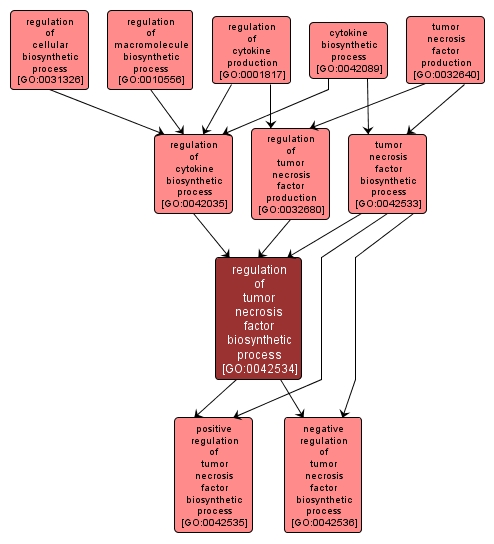| Desc: |
Any process that modulates the frequency, rate or extent of the chemical reactions and pathways resulting in the formation of tumor necrosis factor, an inflammatory cytokine produced by macrophages/monocytes during acute inflammation and which is responsible for a diverse range of signaling events within cells, leading to necrosis or apoptosis. |














